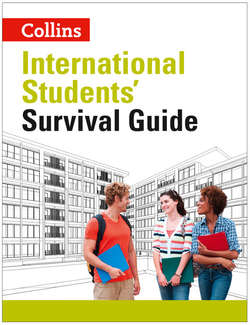Читать книгу International Students’ Survival Guide - Литагент HarperCollins USD, Ю. Д. Земенков, Koostaja: Ajakiri New Scientist - Страница 33
Will I be homesick?
ОглавлениеWhatever your experience of culture shock, homesickness will probably be a part of it. When you move abroad, it’s natural to miss home at least some of the time. In fact, some research has found that 85–95% of young people who move away from home report feeling homesick. The good news is that for most people, feelings of homesickness are relatively mild. Although you’re more than likely to miss your friends and family at home, you’re unlikely to feel worse as time goes on, or to have too much difficulty managing your daily life.
However, for a small percentage of people (around 6–9%), homesickness can be quite severe and difficult to manage without help. People who are severely homesick think about home most of the time. They may become depressed or angry, and avoid spending time with people around them. They may have these feelings right from the start, and feel even worse as time goes on.
There is no way of knowing for certain why some people become more homesick than others—but there are several known risk factors. To see if you might be one of those affected, try the questionnaire below then read the explanation afterward.
Homesickness Questionnaire
Circle the option a, b, or, c that best describes your response to questions 1–9.
1. How much experience do you have of being away from home for an extended period of time? (i.e. longer than 2 weeks)
a) a lot of experience
b) some experience
c) little or no experience
2. How homesick do you expect to be?
a) very homewsick
b) somewhat homesick
c) not at all homesick
3. How easy do you think it will be for you to make friends?
a) quite easy
b) not sure
c) very difficult
4. How do you usually feel about trying out new things?
a) excited
b) curious
c) worried
5. How organized do you like your life to be?
a) very organized
b) somewhat organized
c) not very organized
6. When you have a problem, how do you normally deal with it?
a) I try to sort it out myself
b) I hope that things will get better
c) I get help
7. When you are upset, how often can you rely on family members for support?
a) always
b) it depends
c) not usually
8. How does your family feel about you studying abroad?
a) excited
b) neutral
c) worried
9. How involved have you been in making decisions about your study abroad?
a) very involved
b) somewhat involved
c) not really involved
